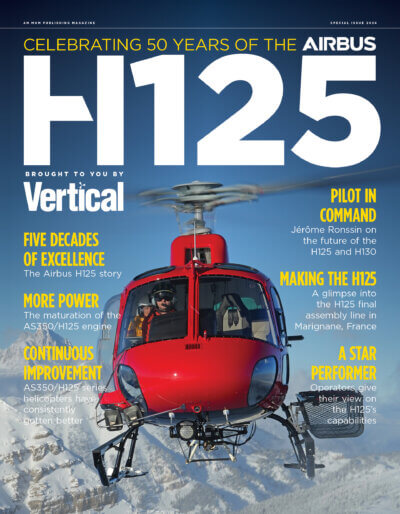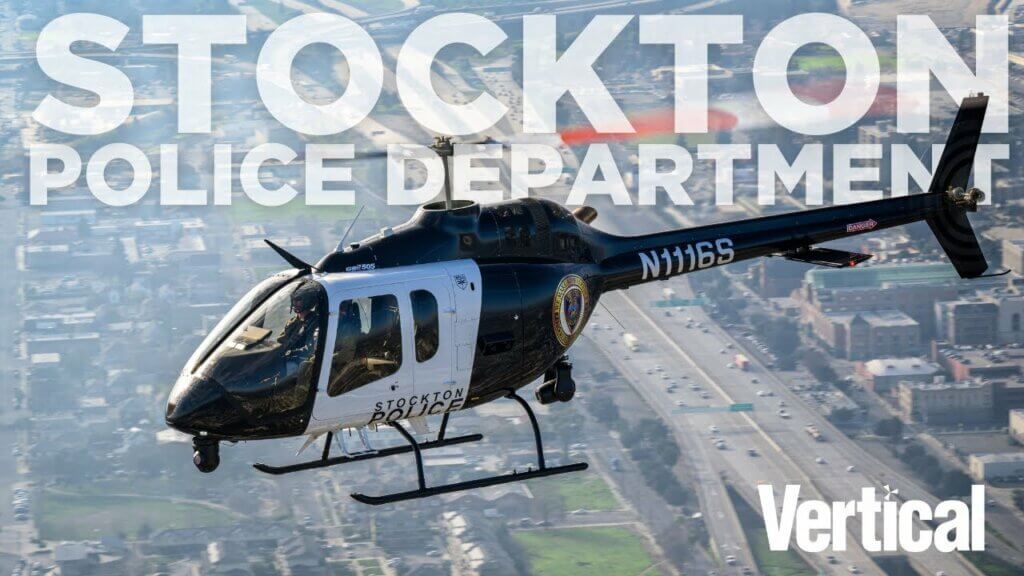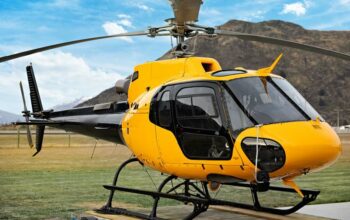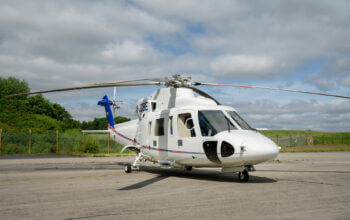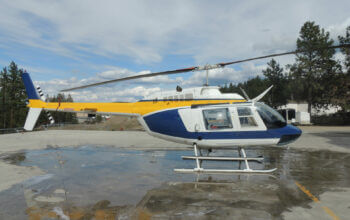California eVTOL firm Joby Aviation has completed what the company is calling a “first-of-its-kind” air taxi test flight powered by hydrogen-electric technology.
The “landmark” flight was carried out last month using a converted pre-production Joby prototype fitted with a liquid hydrogen fuel tank and fuel cell system. The aircraft flew 523 miles (842 kilometers), and landed with 10 percent of its hydrogen fuel load remaining, with water as its only byproduct.
Joby said it believes this flight is the first forward flight of a vertical takeoff and landing aircraft powered by liquid hydrogen. Joby’s hydrogen-electric demonstrator “is part of the company’s future technology program,” Joby said.
“Traveling by air is central to human progress, but we need to find ways to make it cleaner,” said JoeBen Bevirt, founder and CEO of Joby. “With our battery-electric air taxi set to fundamentally change the way we move around cities, we’re excited to now be building a technology stack that could redefine regional travel using hydrogen-electric aircraft.”
Bevirt said the sector is getting closer to hydrogen-electric flight, and with the “progress we’ve made toward certifying the battery-electric version of our aircraft, [it] gives us a great head start as we look ahead to making hydrogen-electric flight a reality.”

The eVTOL firm plans to start commercial operations in 2025 using its yet-to-be-certified battery-electric air taxi. With hydrogen-powered flight on the horizon, Joby said it believes the work that the company is putting into designing, testing and certifying the battery-electric aircraft will carry over to its future hydrogen-electric aircraft.
“We also expect to be able to use the same landing pads, the same operations team, and Joby’s ElevateOS software that will support the commercial operation of our battery-electric aircraft,” Bevirt said.
Joby’s bid in hydrogen-electric aviation stems back to April 2021 when the company quietly purchased German hydrogen startup H2Fly. Last month’s milestone flight combines the technology developed by the California eVTOL company and its hydrogen subsidiary.
Using the same airframe and architecture as Joby’s battery-electric aircraft, the hydrogen-electric demonstrator was fitted with a liquid hydrogen fuel tank that stores up to 40 kilograms (88 pounds) of liquid hydrogen, alongside a reduced mass of batteries.
Hydrogen is fed into the hydrogen fuel cell system, which was designed and built by H2Fly. The system generates electricity used to power the aircraft’s six electric motors, and the batteries provide additional power primarily during takeoff and landing.
“H2FLY is proud to deliver a highly efficient fuel cell system that underlines our expertise in designing and building fuel cell systems for different aircraft applications, and supports Joby in demonstrating the potential for emission-free regional flights,” said Josef Kallo, co-founder and CEO of H2Fly.
The German startup used similar technology to complete another record-breaking flight in September 2023, when it flew what it believes was the world’s first piloted flight of a conventional liquid hydrogen-electric aircraft using fuel cell technology.
The company’s hydrogen-electric program is supported through Joby’s partnership with the U.S. Air Force’s Agility Prime program. Jacob Wilson, acting branch chief of AFWERX Agility Prime, said hydrogen technology aligns with the program’s goals to “advance transformative vertical-lift technologies.”
Adding to Joby’s technological capabilities, the company acquired autonomous technology firm Xwing last month. Xwing has been flying autonomous aircraft since 2020, carrying out 250 fully autonomous flights and more than 500 auto-landings. Joby also acquired Inras GmbH in 2021, a company based in Linz, Austria, developing lightweight, high-performance radar sensor technology.




